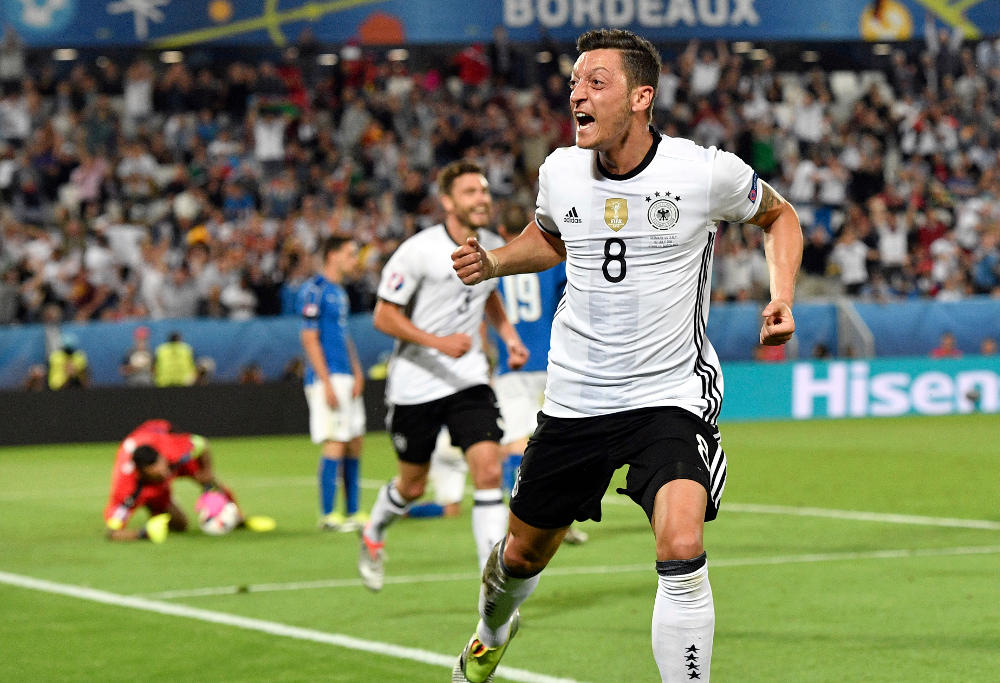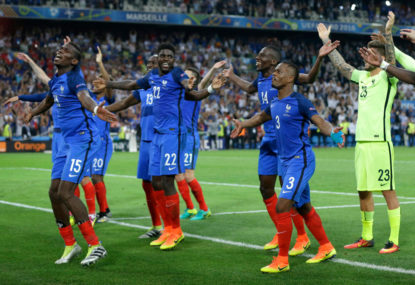During last week’s World Cup qualifiers, while Europe’s sporting media were focused on the giant, and not-so-giant, nations of European football taking each other on for the right to go to Russia in 2018, something rather notable, but so far underreported, happened in Andorra’s Estadi Nacional.
In front of an estimated crowd of approximately 2,000 people, Andorra managed a 0-0 draw against the Faroe Islands.
A scoreless draw between two of Europe’s smallest nations is quite significant. Here’s why.
This result is notable because the Andorrans managed to break a run of 58 successive competitive losses, stretching back over 11 years.
Not surprisingly, the Andorran players and fans celebrated this result as if they’d won a major tournament.
If a scoreless draw can invoke scenes of wild jubilation, I found myself questioning, and not for the first time, why UEFA, unlike nearly every other confederation in the world, do not have preliminary rounds for the lower-ranked nations.
The AFC, CONCACAF, the OFC and the CAF all have preliminary rounds where tiny island nations, non-footballing countries or newly defined states battle it out among each other for the right to compete at the next level.
Aside from UEFA, only the South American nations of CONMEBOL eschew preliminaries, but they number only 10 and are relatively evenly-matched.
UEFA represents 55 countries, making it the confederation with the greatest amount of national teams. With Russia having already qualified as the host nation for the 2018 World Cup, the remaining 54 teams are pooled into nine groups of six, all competing for one of the remaining 13 qualification spots.
The top-placed teams in each group qualify, while the best eight second-placed teams will be drawn against one another in a home-and-away play-off competition to decide the final places.
So far, so good, if not a little bloated.

However, at the bottom of these qualification groups, it has become the case that there is always at least one team of “whipping boys”; the nations for whom the others compete, not to beat, but to see how much they can improve their goal difference by.
It’s said that there are no easy games in international football, but – aside from the occasional freak result – these matches are about as easy as can be.
Apart from the aforementioned Andorra, the bottom places in each group are taken by Luxembourg, San Marino, Moldova, Kazakhstan, Malta, Liechtenstein and the newly recognised teams from Gibraltar and Kosovo.
At the halfway point of this qualification stage, these nine teams have, between them, amassed 6 points – all from draws.
The presence of these teams, as well as some of the other nations that make up the second-bottom places in the groups, makes for plenty of bank account-filling fixtures, but at what cost?
Being on the receiving end of countless drubbings during the group stages does little to enhance these nations’ teams or their players; and they do not make for interesting spectacles, as, increasingly, the tactics of many coaches at this level are to put all 11 players behind the ball, to defend and frustrate, and prevent their opposition from posting cricket scores.
Some of the smallest of these nations do not even have the facilities to host the better-supported teams and their players, often reduced to playing many of their “home” fixtures in a stadium belonging to a professional club in a neighbouring country.
Additionally, thanks to seeding during the draw to decide UEFA’s qualifying groups, these lower-ranked nations rarely get the opportunity to play each other, except in friendlies, meaning they get little match-time against similar teams; hence Andorra’s 11-year losing streak.
Just imagine playing in, or supporting, a team that gets thrashed all the time by more skilful opponents.

With more European nations having joined the party, like the aforementioned Gibraltar and Kosovo, and even a semi-serious campaign a few years ago for a Vatican team to be recognised by UEFA, it’s about time that UEFA take the step to introduce preliminary rounds, and drastically reduce the number of teams involved in the qualification groups.
Placing Europe’s lowest ranked 10, 15, or even 20 teams in a preliminary round, to battle it out for a defined number of slots in the next phase, would make for an entertaining, evenly-matched competition for these countries.
It would allow them the chance to get involved in truly competitive games, and might possibly put an end to the humiliating defeats that blight the European qualification process.
This would also potentially rid the qualifiers of the current second phase, as fewer groups could allow for the first and second placed teams to progress without the need for home-and-away knock-out matches.
There’ll still be opportunity for the best of these teams to progress, and to hopefully provide the kind of upsets that their fans and most neutrals love, but even the most optimistic of fans would concede that none of Europe’s current basement dwellers will make the trip to Russia.
So why the need for them all to be included in this phase of the qualifiers?
Let’s have a re-structured European qualification process, give these teams a chance to prove themselves against similar opposition, and have UEFA stop kidding themselves, and supporters, that watching the likes of Germany or Spain putting eight goals past San Marino or Liechtenstein is somehow good for the game.






































































































